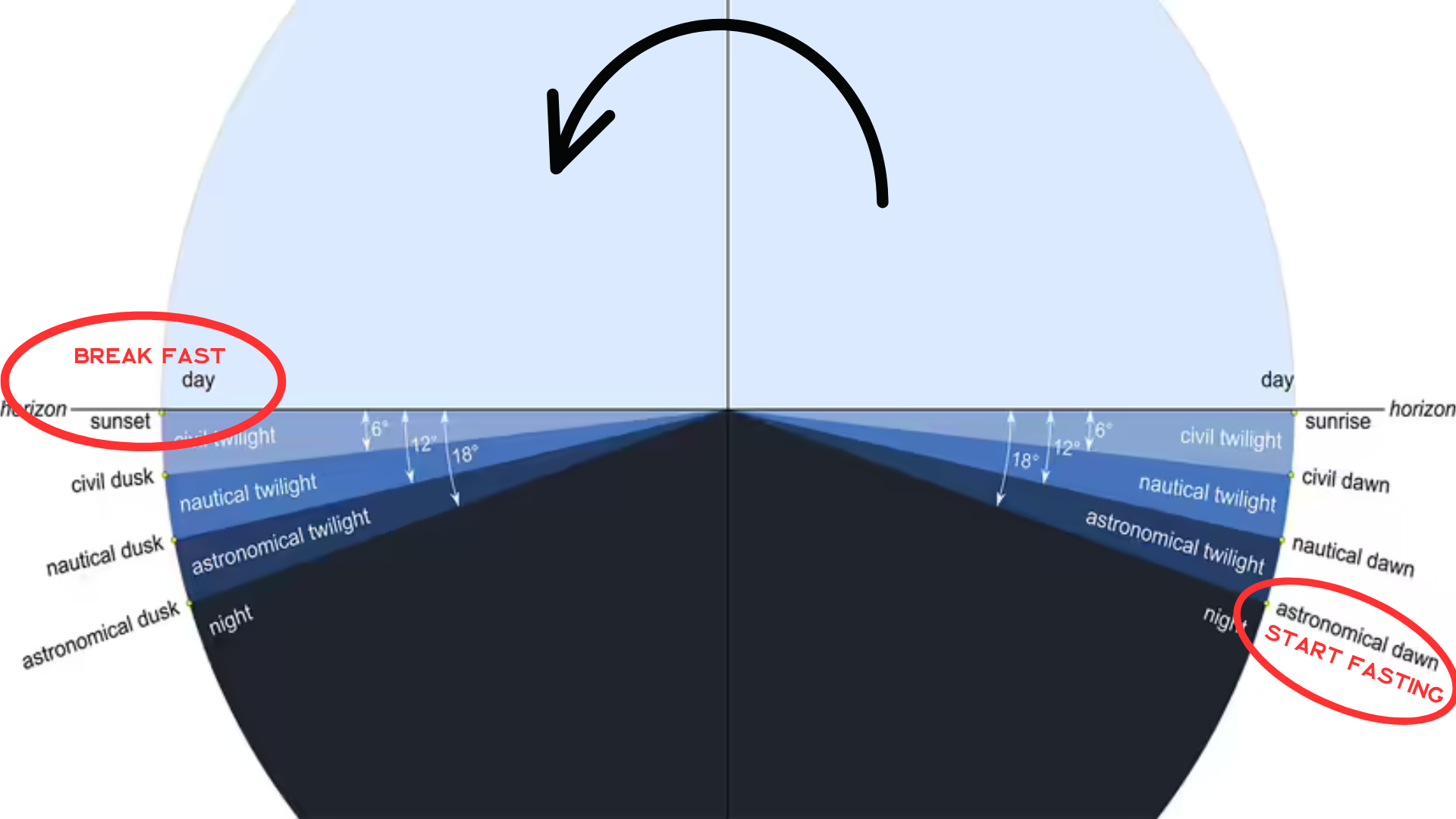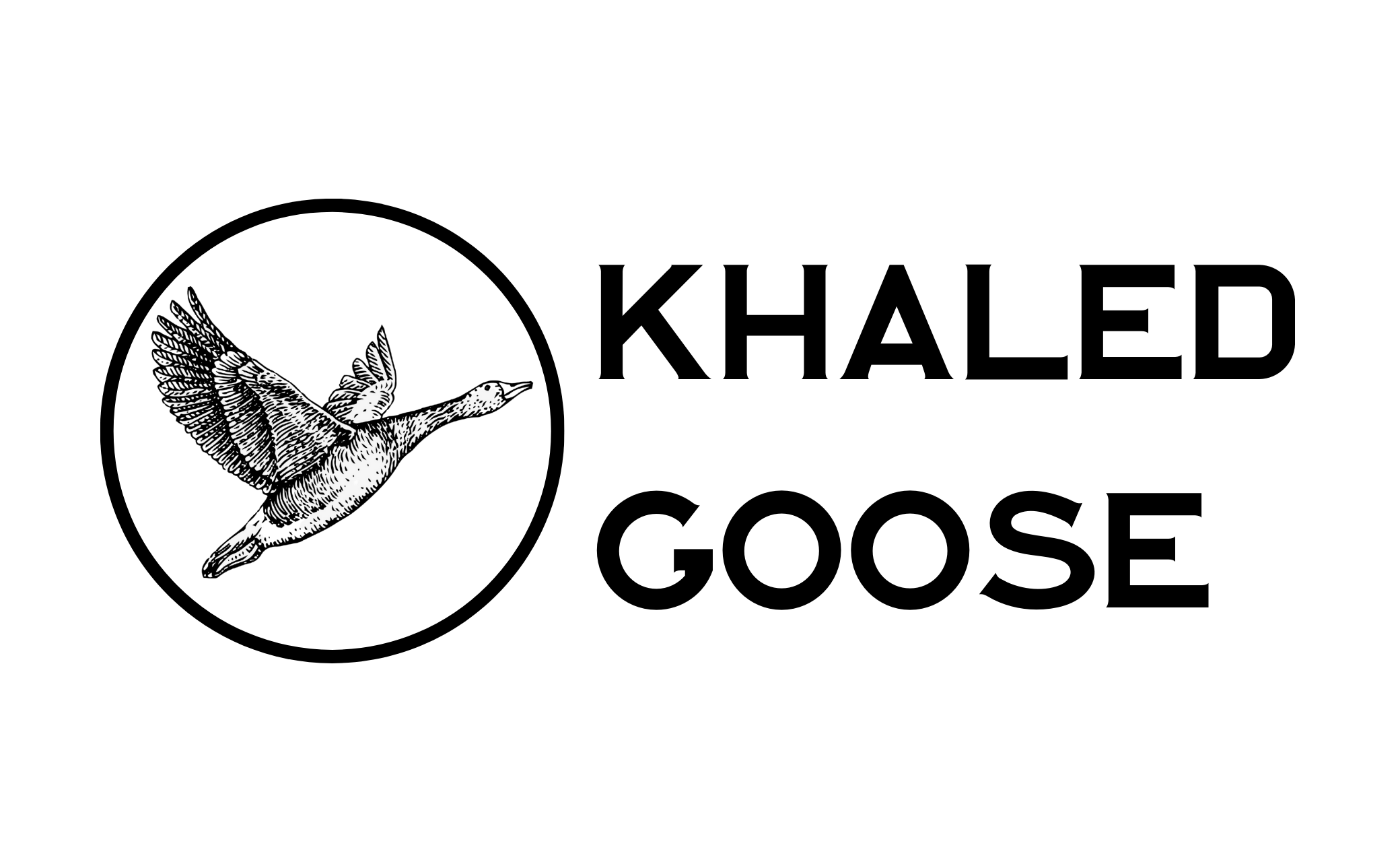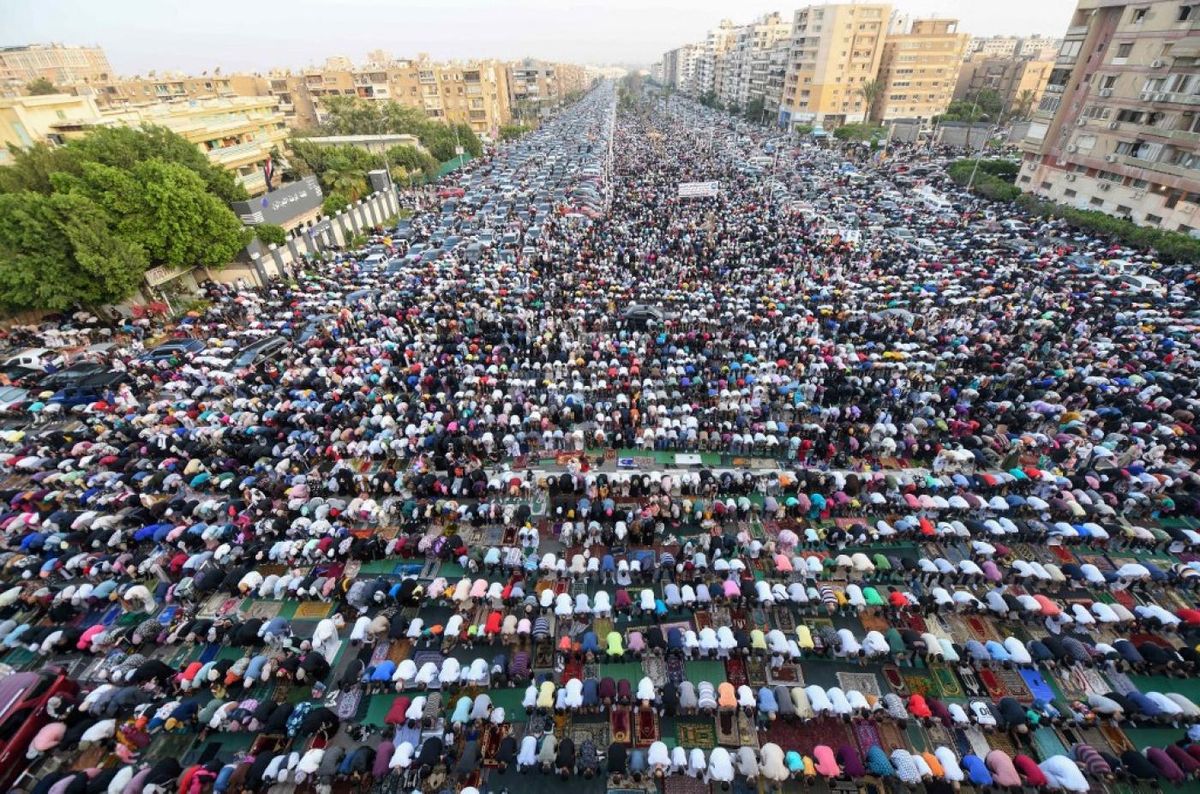Let's start at the top. Muslims fast because they've been commanded to by God. I want to stress this point because, in an era of rationalism, many people (including myself) have found a renewed interest in religion due to the utilitarian benefits religion brings.
Why do you fast? This is a question every Muslim has probably been asked during the month of Ramadan. When I was younger, the standard issue answer we'd give people was, "so we'd know how the poor felt," Now, I'm not saying that's not one of the reasons Muslims fast during the month of Ramadan, but what I will say is that it's most certainly not the primary reason Muslims fast during Ramadan. So what is the primary reason Muslims fast during Ramadan? Before we get into that, let's just quickly get oriented. The Month of Ramadan is a holy month observed by all Muslims around the world. During this month, healthy and capable Muslims are obligated to fast from Fajr (astronomical dawn) till Maghrib (sunset).

Fasting Ramadan is one of the five Pillars of Islam
1. To bear witness that there is no deity but Allah, and Mohammed is his last & final messenger.
2. To keep the five prayers
3. Give Charity to the poor
4. Fasting Ramadan
5. Perform the pilgrimage to Mecca if capable.
You might have realized that every year Ramadan shifts about a bit. Back in 2014, Ramadan started on June 28th; this year, in 2023, Ramadan begins on March 23rd. Why is that? Well, it's the kind of calendar Muslims uses to mark time. The calendar we generally use around the world is called the Gregorian Calendar; this calendar went into effect in October 1582 by order of Pope Gregory XII. The Gregorian calendar was instituted to improve upon the Julian Calendar's (named after Julius Caesar) calculation of leap years. Both the Julian Calendar & Gregorian calendar though measure the year by the earth's complete revolution around the sun. The Gregorian calendar has 365 or 366 days per year. In contrast, the Islamic calendar is a lunar calendar, meaning its months are marked by the sighting of a new moon's crescent. In the Islamic calendar, there are 354 or 355 days per year. This difference of about 11 days means an Islamic month's start date shifts back about 11 days each year against the Gregorian calendar. So next year, Ramadan is set to start on about March 11.


So now that we've defined Ramadan, back to the question of why Muslims fast. Let's start at the top. Muslims fast because they've been commanded to by God. I want to stress this point because, in an era of rationalism, many people (including myself) have found a renewed interest in religion due to the utilitarian benefits religion brings. The line of thinking usually goes something like this:
A) Maybe god & religion are real, maybe not.
B) What is real is that when you follow the commandments of religion you reduce the chaos in your life and things work out better.
C) There is a clear utility to religion so I will follow it for that reason.
That basically sums up the utilitarian approach to religion. When approached from this perspective, the adherent will attempt to weigh the practices of the religion against their perceived benefits as far as they can be rationally grasped. There's nothing wrong with recognizing the tangible benefits of religious practices, but make no mistake, the benefits are never the primary reason Muslims observe their faith. There are many commands in the religion that we may not be able to grasp rationally, but this does not mean we follow what we understand and disregard what we don't. The literal definition of the word Muslim is one who submits to god. The Muslim is one who, when dealing with god, obeys first. So, primarily Muslims fast because we've been commanded to do so by Allah. Set that point firm, and from there, you are free to enjoy the rational benefits and recognize the other reasons why Muslims fast. When the top priority is properly placed, everything else falls into place. Disregard the foundation, and everything collapses. Make no mistake, submission to god is the basis on which everything is built.
So now that we've laid our foundation let's build. The month of Ramadan is the holiest month in the Islamic calendar, and it is a time to grow closer to Allah. The focus during this month is spiritual. We are souls that have bodies. The physical demands of our bodies are, more often than not, the primary consideration. We would think someone is crazy if they didn't give their family any food- nourishment for the body, but we all know people who don't give their families love - nourishment for their souls. We make sure our bodies are healthy, but how often do we consider the health of our souls? Enter Ramadan; in Ramadan we invert the picture. We withhold nourishment from our physical bodies to focus on our souls. The body is weakened and deprived of food, water, sleep, and sexual indulgence. As time wears on, the body's constant nagging to indulge it quiets down; the person can begin to focus on the purification of the soul. Quran, prayer, and remembrance of god occupy the believer's mind.
There is something to be said about the power of Ramadan. When a habit is maintained, collectively, for as long as Ramadan has been maintained, with as much human energy invested into it as Muslims invest into Ramadan, some pretty impressive things occur. Habits are one of the fundamental things that shape our reality. The habits we keep are the life we live. But when it comes to habits, there's a kind of hierarchy. We have our personal habits. More powerful than those are the habits of our friends and families. Even more powerful than those habits are the habits of the people who have control over us. But even more powerful than those habits are the habits of the religions. Here's a tangible example.
Let's say you have a habit of walking every day at 8 AM. On your own, this habit will carry on uninhibited.
But let's say you live with your family, and at 8 AM, they have the habit of making breakfast and insisting you join them. Now you're habit is struggling under the force of their habit. Odds are, over time, you'll adjust to their habit.
But now let's say you and your family all work 9-5. You all gotta get ready to go to work at 8 AM, so now the breakfast habit and the walking habit buckle under that 9-5.
But on Holidays, all these habits go out the window. On Christmas, all habits are tossed out the window, and you do whatever your family does Christmas.
When it comes to habit-breaking power, Ramadan is the most powerful the world has ever seen. For 1,382 years, the consistently growing number of Muslims has foregone physical and material indulgence and focused on the purification of the soul. Ask any Muslims you know what happens to their habits during the month of Ramadan, and they'll tell you they all go topsy turvy—even the Muslims who aren't observing. Ramadan is so powerful that in most Muslim countries, even the non-muslims feel the habit shift of Ramadan. Can't we all use some habit-breaking? Imagine being part of a collective of 1.9 Billion, all fasting, purifying their souls, and abstaining from evil. Unsurprisingly, people who regularly smoke note that it's not hard to quit during Ramadan. Any personal habits you may have, are challenged and strained under the weight of Ramadan. The Prophet Mohamed ﷺ narrated, "When Ramadan Begins, the gates of Paradise open up, the doors of Hell are locked, and the devils are chained."
The devil works through your habits, and in Ramadan, for 29 days, that grasp is released. After being commanded to do so by Allah, I believe this is why we Muslims fast. It is notoriously hard for us to get control of ourselves. Our habits & our environments impose on us consistently, but for an entire month, 1/4 of the world's population goes back to the drawing board, reassesses, and tries to point in the proper direction. By submitting to the will of Allah, Ramadan empowers every Muslim to shape the world around them.

